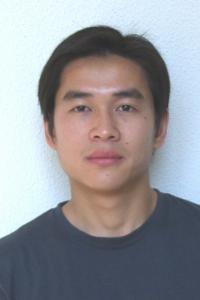Dr. Jun Zhang is a full professor at Hefei National Laboratory of Physical Sciences at Microscale, University of Science and Technology of China (USTC). Dr. Zhang received his bachelor’s degree and PhD both from USTC at 2002, and 2007, respectively. From August 2007 to January 2011, he had been working in University of Geneva as a postdoctoral researcher. At January 2011 he came back to USTC. Dr. Zhang was promoted as a full professor starting from July 2016. Currently his research interests include quantum communication, single-photon detection and applications, quantum random number generator and quantum Lidar. For high-speed single-photon detection, he achieved a world record in terms of working frequency, which thoroughly resolved the long-standing bottleneck problem of working frequency for single-photon detectors. Then he implemented board-integrated and monolithically-integrated InGaAs/InP single-photon detectors with a gating frequency of 1.25 GHz for the first time, which have been deployed in large-scale for the giant project of “Beijing-Shanghai Quantum Communication Backbone Network”. Also, he experimentally demonstrated a quantum random number generator (QRNG) with a bit rate of 68 Gbps, which had been reported by a well-known American scientific magazine, MIT Technology Review, entitled as “World's Fastest Quantum Random Number Generator Unveiled in China”. So far, Dr. Zhang has published around 50 papers in well-known journals including Nature (1), Nature Photonics (3), Physical Review Letters (8), Physics Reports (1), Light: Science & Applications (1), Optica (2), Optics Letters (2), and Optics Express (4), with over 2300 citations (Google Scholar) and h-index of 22, and has 14 authorized/accepted invent patents as well.
Related Publications
- Design considerations of high-performance InGaAs/InP single-photon avalanche diodes for quantum key distribution. Applied Optics 55, 7497 (2016).
- FPGA implementation of Toeplitz hashing extractor for real time post-processing of raw random numbers. 1-5 (2016). doi:10.1109/RTC.2016.7543094
- Advances in InGaAs/InP single-photon detector systems for quantum communication. Light: Science \& Applications 4, e286 (2015).
- The generation of 68 Gbps quantum random number by measuring laser phase fluctuations. Review of Scientific Instruments 86, 063105 (2015).
- Long-range micro-pulse aerosol lidar at 1.5 mu m with an upconversion single-photon detector. Optics Letters 40, 1579-1582 (2015).
- Simulation of a high-efficiency and low-jitter nanostructured silicon single-photon avalanche diode. Optica 2, 974-979 (2015).
- Practical and fast quantum random number generation based on photon arrival time relative to external reference. Applied Physics Letters 104, 051110 (2014).
- Fully integrated InGaAs/InP single-photon detector module with gigahertz sine wave gating. Review of Scientific Instruments 83, 083111 (2012).
- Entangled photons and quantum communication. Physics Reports 497, 1 (2010).
- General theory of decoy-state quantum cryptography with source errors. Physical Review A 77, 042311 (2008).
